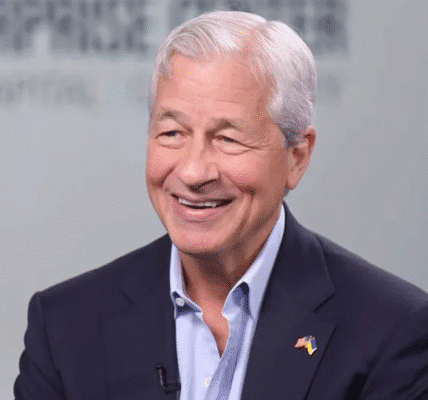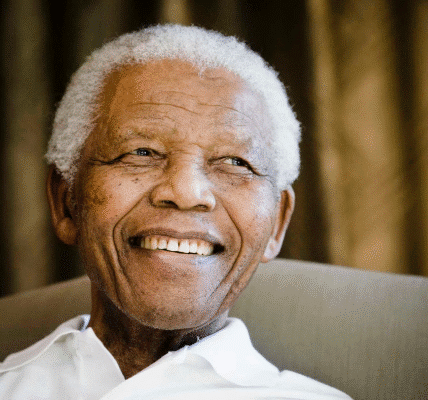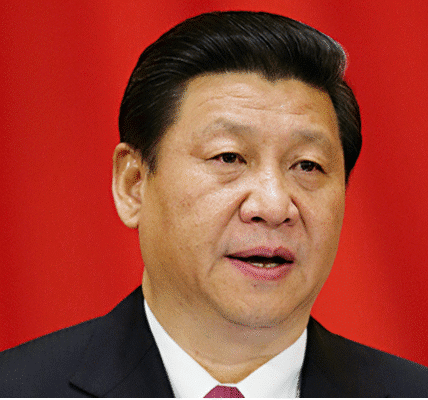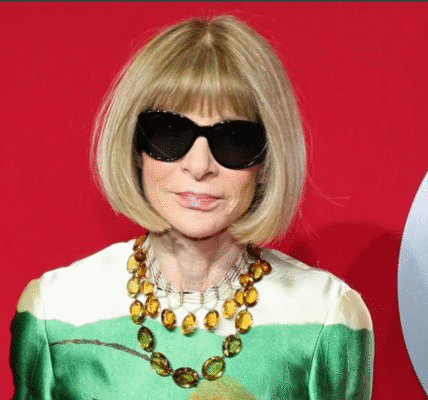GlaxoSmithKline: Achievements and Ethical Challenges in Pharma
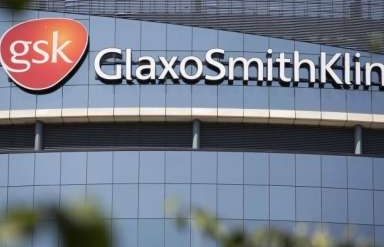
GSK plc, previously known as GlaxoSmithKline plc, is a British multinational pharmaceutical and biotechnology company headquartered in London. It was formed in 2000 through the merger of Glaxo Wellcome and SmithKline Beecham, which itself was the result of earlier mergers among several pharmaceutical firms, including the historic Smith, Kline & French.
As of 2022, GSK ranks as the tenth largest pharmaceutical company globally and holds the 294th position on the Fortune Global 500 list. The company has a primary listing on the London Stock Exchange and is part of the FTSE 100 Index, with a market capitalization of approximately £69 billion as of February 2024, making it the eighth largest company on the exchange.
GSK is known for its significant contributions to public health, including the development of RTS,S, the first malaria vaccine, which it made available at minimal cost. The company also boasts a legacy of essential medicines, including amoxicillin and zidovudine, recognized by the World Health Organization.
In 2012, GSK faced legal challenges, including a significant settlement of $3 billion for unlawful marketing practices and failure to report safety data regarding several medications. This case remains one of the largest healthcare fraud settlements in U.S. history.
Historical Background
Glaxo Wellcome
The origins of Glaxo can be traced back to 1873 when Joseph Nathan and Co. was established in New Zealand. Initially a trading company, it began producing a dried-milk baby food in 1904, later branded as Glaxo. The company evolved into a pharmaceutical entity with the introduction of its first drug, vitamin D, in 1924. By 1935, Glaxo was incorporated as a subsidiary in London and later became a publicly traded company.
Burroughs Wellcome
Founded in 1880 by American pharmacists Henry Wellcome and Silas Burroughs, Burroughs Wellcome & Company made significant strides in pharmaceuticals, notably establishing the Wellcome Tropical Research Laboratories in 1902. The company produced pioneering drugs and expanded globally.
Merger and Formation of GSK
The merger of Glaxo and Burroughs Wellcome in 1995 created Glaxo Wellcome plc, which soon became one of the largest pharmaceutical firms in the world. In 1989, SmithKline Beckman was formed through a merger of SmithKline & French and Beecham Group, which set the stage for the eventual merger with Glaxo Wellcome. The completion of this merger in December 2000 led to the establishment of GSK, with its headquarters at GSK House in Brentford, London, officially opened in 2002.
GSK continues to play a pivotal role in the pharmaceutical industry, focusing on research and development to bring innovative healthcare solutions to the global market.
Merger History
In 1989, SmithKline Beckman merged with Beecham Group to create SmithKline Beecham P.L.C., relocating its headquarters from the United States to England. To bolster its research and development efforts in the U.S., the company opened a new research center in 1995 and another in 1997 at New Frontiers Science Park in Harlow, England.
2000: Formation of GSK
In January 2000, Glaxo Wellcome and SmithKline Beecham announced their intention to merge, completing the process on December 27 that year to form GlaxoSmithKline (GSK). The global headquarters were established at GSK House in Brentford, London, which officially opened in 2002, costing £300 million and accommodating around 3,000 administrative staff.
2001–2010 Developments
In 2001, GSK acquired New Jersey-based Block Drug for $1.24 billion. The following year, it purchased CNS Inc., a U.S. consumer healthcare company, for $566 million. Chris Gent, former CEO of Vodafone, became chairman of the board in 2005. GSK opened its first research center in China in 2007, focused on neurodegenerative diseases, and appointed Andrew Witty as CEO in 2008.
In 2009, GSK acquired Stiefel Laboratories, the largest independent dermatology company, for $3.6 billion. That same year, it received FDA approval for a vaccine against the 2009 H1N1 influenza and formed a joint venture with Pfizer, known as ViiV Healthcare, specializing in HIV research. GSK continued its expansion by acquiring Laboratorios Phoenix for $253 million and the UK-based sports nutrition company Maxinutrition for £162 million in 2010.
2011–2022 Milestones
In 2011, GSK sold 17 brands to Prestige Brands Holdings for $660 million. The following year, it invested £500 million in manufacturing facilities in Ulverston, England, and acquired CellZome for $98 million. In 2013, GSK purchased Human Genome Sciences for $3 billion, enhancing its portfolio in lupus and diabetes treatments.
In 2014, GSK increased its stake in its Indian unit to 75%, focusing on emerging markets, and entered into a significant deal with Novartis, trading vaccine and cancer businesses worth over $20 billion. Emma Walmsley became CEO in March 2017, marking the first time a woman led the company.
In 2018, GSK divested its gene therapy portfolio to Orchard Therapeutics and agreed to sell its Indian consumer healthcare business to Unilever for $3.8 billion. The same year, it acquired oncology specialist Tesaro for $5.1 billion.
In 2019, GSK sold its rabies vaccine, RabAvert, and tick-borne encephalitis vaccine, Encepur, to Bavarian Nordic for $1.06 billion. The company also acquired a 10% stake in CureVac, a German biotech firm, in July 2020.
Joint Ventures and Spin-Off
In March 2018, GSK agreed to acquire Novartis’s 36.5% stake in their Consumer Healthcare Joint Venture for $13 billion. Later, in December 2018, GSK and Pfizer announced a merger of their consumer healthcare divisions, with GSK maintaining a 68% stake.
This series of strategic moves culminated in GSK’s decision to split into two publicly traded companies: one focused on pharmaceuticals and R&D, and the other on consumer healthcare. The consumer healthcare entity, named Haleon, was set to be spun off in February 2022. Despite receiving unsolicited offers from Unilever valued at £50 billion for its consumer healthcare business, GSK declined all external acquisition attempts, proceeding with its demerger plans.
Recent Developments
In April 2022, GSK announced its acquisition of Sierra Oncology Inc. for $1.9 billion, or $55 per share. The following month, GSK revealed plans to acquire Affinivax and its phase II 24-valent pneumococcal vaccine candidate for up to $3.3 billion, further enhancing its vaccine portfolio. On May 16, 2022, the company officially rebranded from GlaxoSmithKline to GSK.
In April 2023, GSK announced its intention to acquire Bellus Health Inc. for $2 billion. By February 2024, the company expanded its asthma business by acquiring Aiolos Bio for over $1 billion, incorporating AIO-001, a long-acting monoclonal antibody targeting thymic stromal lymphopoietin cytokine.
In May 2024, GSK sold off its 4.2% stake in Haleon for $1.58 billion. Shortly after, in July 2024, the company relocated its headquarters from Brentford to New Oxford Street in central London.
Research Areas and Products
GSK develops pharmaceuticals for major disease areas, including asthma, cancer, infections, diabetes, and mental health. Key products from GSK and its legacy companies that are now sold as generics include amoxicillin, zidovudine, sumatriptan, and bupropion. Notably, several of these medications, such as albendazole and amoxicillin, are listed on the World Health Organization’s List of Essential Medicines.
Malaria Vaccine Development
In 2014, GSK sought regulatory approval for RTS,S, the first malaria vaccine developed in partnership with the PATH vaccines initiative and the Bill and Melinda Gates Foundation. This vaccine, aimed at combating malaria—which causes over 650,000 deaths annually, primarily in Africa—was shown to provide approximately 50% protection in children aged 5-17 months during a Phase 3 trial.
Consumer Healthcare Division
GSK’s consumer healthcare division generated £5.2 billion in revenue in 2013, offering products such as Aquafresh and Sensodyne toothpastes. The company previously owned Lucozade and Ribena, which were sold to Suntory for £1.35 billion in 2013. Other notable products include Abreva, Night Nurse, and nicotine replacements like Nicoderm and Nicorette.
Facilities and Workforce
As of 2013, GSK operated in over 115 countries, employing more than 99,000 people, with around 12,500 dedicated to R&D. The United States remains its largest market, with headquarters in Philadelphia and Durham, North Carolina.
COVID-19 Vaccine Collaboration
In July 2020, GSK partnered with Sanofi to develop a COVID-19 vaccine, securing a deal with the UK government for 60 million doses. The vaccine, leveraging recombinant protein technology, aimed to produce up to one billion doses, pending successful trials.
Venture Arms
GSK has a history of investing in biotechnology through SR One, established in 1985, and GSK Ventures, formed in 2003. These subsidiaries focus on developing new drug candidates or investing in biotech companies aligned with GSK’s strategic interests. In September 2019, GSK acquired Sitari Pharmaceuticals, which included a small molecule program for celiac disease.
Scientific Recognition
GlaxoSmithKline (GSK) has celebrated notable contributions from its scientists, with four receiving accolades from the Nobel Committee for their advancements in medical science and therapeutics.
- Henry Dale: A former student of Paul Ehrlich, he was awarded the 1936 Nobel Prize in Medicine for his pioneering research on the chemical transmission of neural impulses. Dale served as a pharmacologist and director at the Wellcome Physiological Research Laboratories and later became a key figure at the Wellcome Trust.
- John Vane: Recognized with the 1982 Nobel Prize for his groundbreaking work on prostaglandin biology, Vane contributed significantly as the group research and development director at the Wellcome Foundation.
- Gertrude B. Elion and George Hitchings: Jointly awarded the 1988 Nobel Prize alongside Sir James W. Black, they were instrumental in discovering crucial drug treatments, including mercaptopurine and thioguanine for leukemia, and acyclovir for herpes, among others.
Philanthropy and Social Responsibility
Since 2010, GSK has consistently ranked at the top of the Global Access to Medicines Index, supported by the Bill and Melinda Gates Foundation. The company has demonstrated its commitment to social responsibility through various initiatives:
- Lymphatic Filariasis and Neglected Tropical Diseases: Collaborating with the World Health Organization (WHO), GSK has committed to donating millions of albendazole tablets annually to combat neglected tropical diseases.
- Price Reductions and Intellectual Property: In 2009, GSK announced a 25% price reduction for drugs in 50 of the poorest countries and initiated a patent pool for neglected disease treatments.
- HIV Initiatives: GSK licensed its HIV portfolio to the Medicines Patent Pool, facilitating access to critical treatments for children and adults in high-burden regions.
Despite these efforts, controversies have emerged, especially regarding access strategies under different leadership, notably the shift under CEO Emma Walmsley.
Controversies and Accountability
GSK has faced significant challenges related to ethics and compliance:
- Antitrust Issues: In the 1970s, GSK was involved in a high-profile antitrust case regarding the antifungal drug griseofulvin, resulting in significant legal ramifications.
- Product Misrepresentation: The company faced scrutiny over its marketing practices for products like Ribena and various medications, leading to fines and negative publicity.
- Major Settlements: In 2012, GSK reached a historic $3 billion settlement over allegations of illegal marketing practices and failure to report safety data.
- Global Investigations: Allegations of bribery in China and other countries have led to extensive investigations and fines, underscoring the importance of corporate governance.
Summary
GlaxoSmithKline (GSK) has made significant contributions to medical science, with several scientists recognized by the Nobel Committee for their work in therapeutics. The company prioritizes philanthropy, ranking highly on the Global Access to Medicines Index and donating millions of tablets to combat neglected diseases.
However, GSK has faced numerous controversies, including antitrust issues, misleading marketing practices, and substantial legal settlements for unethical behavior. Ongoing investigations into bribery highlight the need for ethical governance in the pharmaceutical industry.

